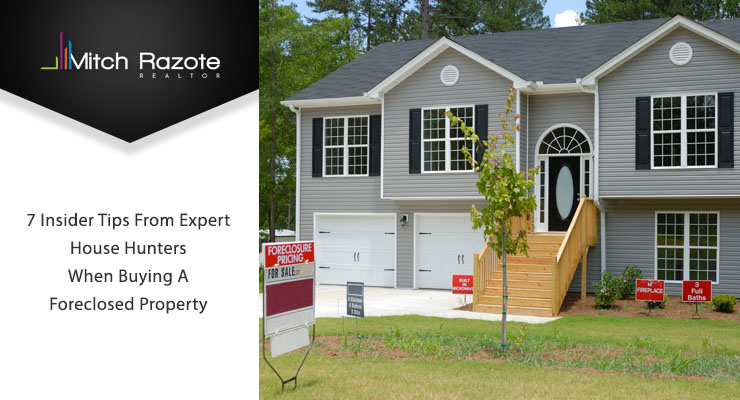Buying foreclosed properties has its advantages. One of which is that they are incredibly affordable as compared to regular real estate properties. Investing in foreclosed properties also gives the buyers value for their money. When buyers buy a cheap foreclosed property, live in it and then sell it at a price, they will have gained a profit.
Real estate investors and expert house hunters already have their specific strategies on what to do when buying foreclosed properties. Here are some tips for you:
1. Get an experienced and reliable broker
You should seek the help of an experienced broker. Having a broker with experience in negotiating with banks, making deals with sellers, and helping people purchase foreclosed properties will definitely make the process easier for you. Your broker is responsible with helping you deal with legal matters, especially.
2. Identify foreclosed properties and know where to look for them
It is important to identify foreclosed properties as early as possible so you will have more time to do some research. Know where to find foreclosed properties. Check the newspaper, property listings on websites, and property auctions. You can also seek the advice of your trusted real estate broker.
3. Get details
Do your homework. Research and ask questions. It is a no-brainer. When investing in a property, you must know all the necessary information. Get information from your reliable broker. Ask for details about the property, its location, how to pay for it, the process and steps to be taken when dealing with a specific bank, and just about every question you can think of that relates to buying a foreclosed property.
4. Attend foreclosure auctions
You have a big chance of finding cheap properties in foreclosure auctions, which are usually organized by banks or bank-hired trustees. Before the actual date of the auction, make sure to contact the party organizing the event to make sure that you have all the necessary requirements to be able to bid for a property. When you attend auctions you must come prepared. Bring cash!
5. Have a reserve cash
It is usual for an auction to get heated with house hunters doing their best to outbid each other. For you to have a great chance of buying the property you have chosen, you must be ready to bid higher for it, make a good offer and be able to pay for it. The highest bidders get utmost priority.
6. Inspect the property and weigh its positive and negative points.
You have the right to do a home inspection before closing your sale, unlike with a foreclosed property purchased at an auction. It is essential for you to see the condition of the foreclosed property before even deciding to purchase it. You need to see to know its status and condition. It is advisable if a specialist comes along during an inspection. Get the property inspected for any issues and identify if there is a need for any repairs.
Never buy without even inspecting the property!
During your property inspection, you can have it appraised. Doing this will ensure that you will pay your money’s worth. Get a contractor or an appraiser to identify if you need to repair some parts of the house, and to know how much the repairs will cost.
7. Make an offer.
Some say it would be better to wait it out before making an offer, to let the property sit on the market for awhile before making an offer. Other expert home buyers would say, “strike while the iron is hot”, to make an offer as soon as possible so you can have priority.
Regardless if you make an offer at the early stages of the sale or submit an offer price at a later stage, you should offer a price that is equal or more than the indicative price or the nominal quote, especially with properties that are high in demand.
It is also best to seek the advice of your broker -- if you should make an offer and when to submit an offer price. Your offer will then be presented to the bank that repossessed the property when the previous homeowner could no longer continue paying for it.
